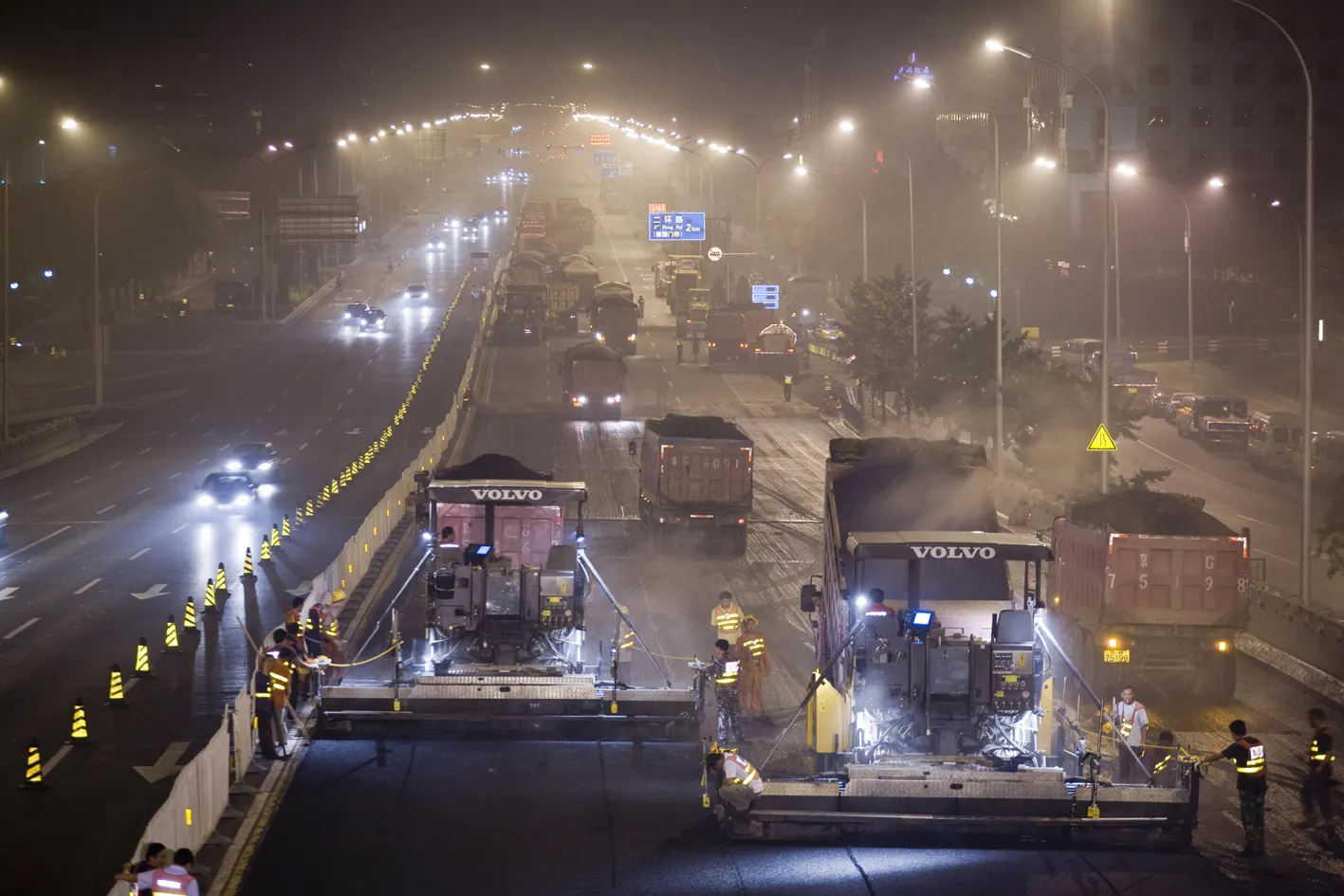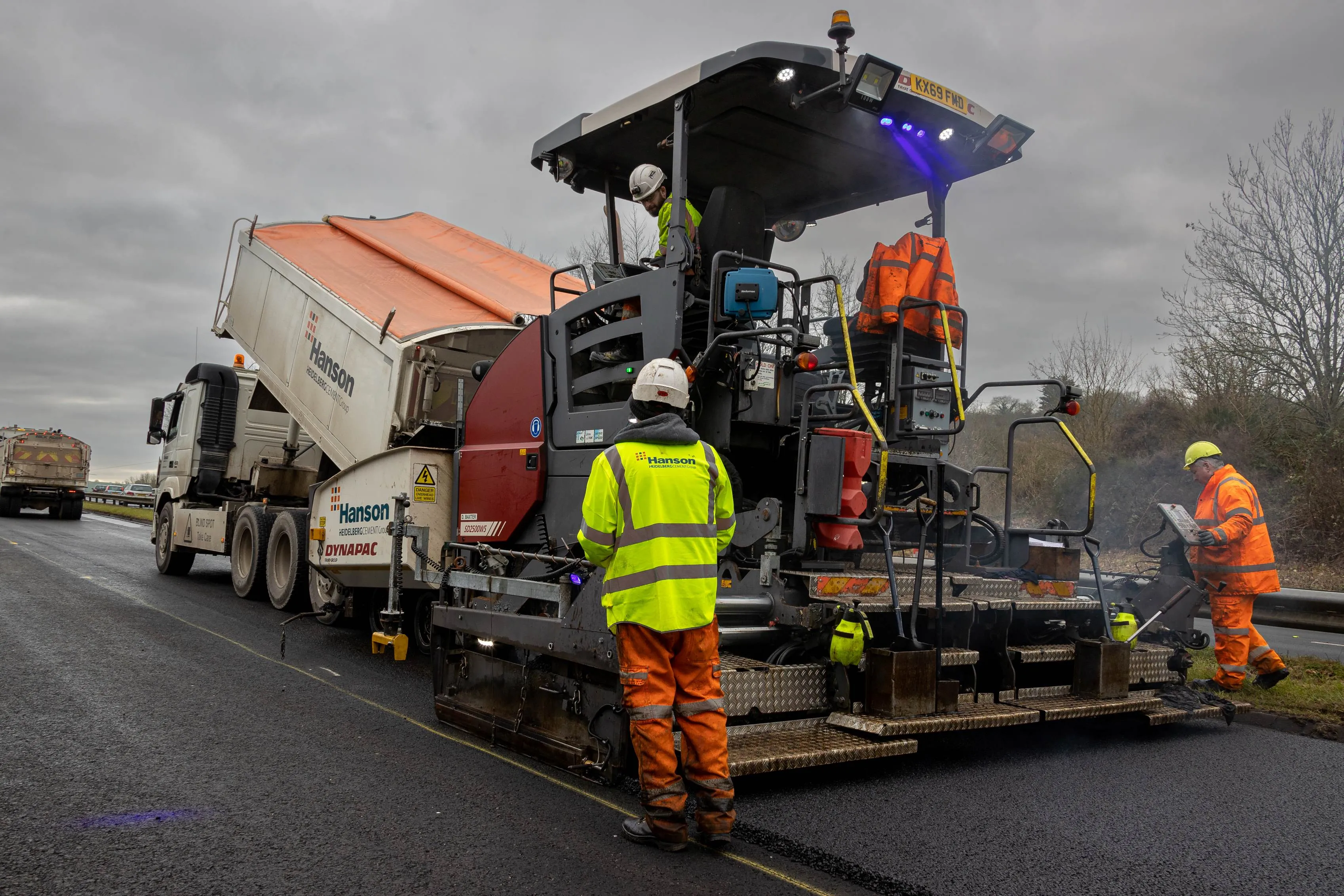Given Morecambe’s important tourist industry, aesthetics – as well as longevity – were an important consideration. Contractor VBA worked with the council and asphalt supplier
VBA laid 592tonnes of ULTICOLOUR, containing 6mm buff-coloured aggregate, in a 30mm-thick surface course. “Our binder is equivalent to a premium polymer modified bitumen for producing durable asphalts even under heavy traffic conditions. The design of the product allows for the entire pavement to absorb the coloured pigment and maintain its appearance even through years of service life,” said Shell Bitumen’s technology manager Connor Campbell.
VBA is a joint venture between VolkerStevin, Boskalis Westminster and Atkins. The three-phase project to replace 1,800m of sea wall started in 2015 and is scheduled to last for around six years.
How waste plastic and soybean oil are helping our roads last longer
A clear polymer-modified binder (PMB) combined with carefully selected aggregates has helped restore an ageing promenade in Morecambe, a popular seaside resort on the West coast of Northern England. As part of a £10 million project to upgrade the seawall in the town, Lancaster City Council procured a new promenade as the existing one had suffered from longitudinal cracking.
Given Morecambe’s important tourist industry, aesthetics – as well as longevity – were an important consideration. Contractor VBA work
April 13, 2018
Read time: 2 mins
A clear polymer-modified binder (PMB) combined with carefully selected aggregates has helped restore an ageing promenade in Morecambe, a popular seaside resort on the West coast of Northern England. As part of a £10 million project to upgrade the seawall in the town, Lancaster City Council procured a new promenade as the existing one had suffered from longitudinal cracking.









